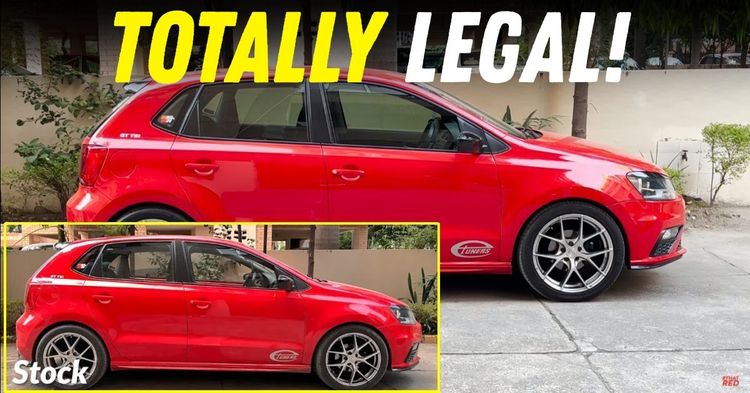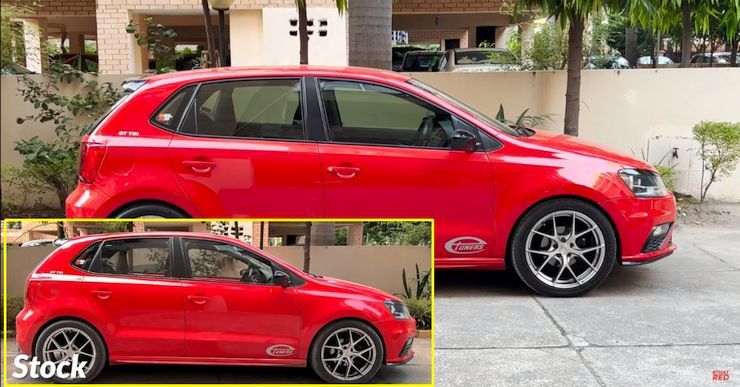Sunfilm Is Illegal But How To Legally Run Tinted Glass? Volkswagen Polo Owner Explains [Video]


Tinted windows and sunfilms on cars are actually illegal in India. With rising temperatures, people are left with no choice but to install such sunfilms and shades that keep the cabin of their car cool. However, these modifications are often spotted by the cops, and they issue fines in most cases.
There are, however, manufacturers who offer tinted glasses from the factory that help in bringing down the cabin temperature and also block UV rays. These glasses are called UV-cut glasses and are not illegal. Here, we have a video where a Polo owner is seen installing these glasses on his hatchback to escape the heat.
The video has been uploaded by Prerak Kataria. The owner of the Polo GT TSI starts by talking about the legality of the glasses. As mentioned above, some brands offer slightly tinted glasses from the factory on some of their models. This is not against the existing rules, as the rules only have objections when the customer installs a film over the windshield.
The glasses seen in the video can be bought from a Volkswagen service center if needed, but that is going to cost you over ₹14,000 including labour charges. The owner of this GT TSI managed to get his hands on these glasses from a Polo that was in a scrapyard near his place. He checked the glasses and got all four of them for ₹5,000 only.
In the video, we then see the vlogger removing the stock window glasses and installing the tinted ones. The vlogger replaced the glass himself. If you are not confident enough, you can ask a skilled mechanic to do the same job for you.

There are companies like Asahi India that manufacture UV-cut glasses for cars. If you are in the market for a windshield film, there are brands like 3M, Garware, and many others who offer this solution. It should be noted that, as per the Supreme Court ruling from 2012, sunfilms on cars are completely banned on private and commercial vehicles.
When delivering this judgment, the Supreme Court stated that crimes against women, kidnapping, and assault were being increasingly carried out in cars with black window films or sunfilms. This was one of the major reasons for the ban.
However, there is still a lot of confusion regarding this rule. While the Supreme Court has put a complete ban on these films, the Kerala High Court in 2024 came forward with a ruling that it is permissible to maintain windscreens or window glasses of motor vehicles with ‘safety glass’ or ‘safety glazing,’ including ‘glazing faced with plastics.’
The bench, while considering this petition, mentioned that in addition to safety glass, safety glazing is permitted under an amendment to Rule 100 of the Central Motor Vehicles Rules, effective from April 1, 2021.
If a motor vehicle’s windscreen or windows are equipped with toughened or laminated glass and it complies with Indian Standards and the permissible VLT (visual light transmission), it qualifies as ‘glazing faced with plastics’ under the definition of ‘glazing’ in Indian Standard IS 2553 (Part 2) (First Revision): 2019 and Global Technical Regulation.
As per the standards, the films on the front and rear windscreens must have 70 percent visibility, while the side glasses should let 50 percent of the light in. This way, the driver and the occupants will save themselves from the bright sun while on the road.